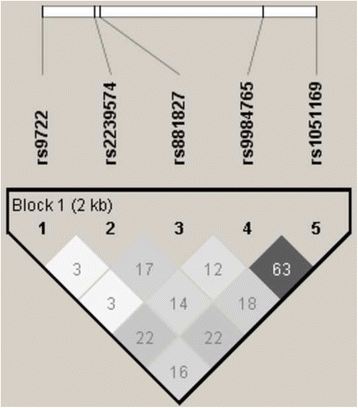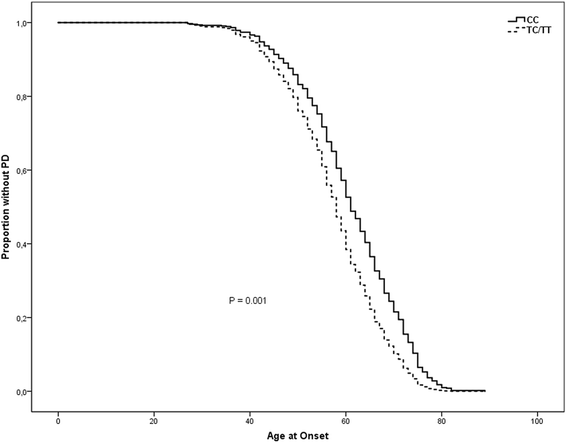S100B polymorphisms are associated with age of onset of Parkinson's disease
- PMID: 29529989
- PMCID: PMC5848451
- DOI: 10.1186/s12881-018-0547-3
S100B polymorphisms are associated with age of onset of Parkinson's disease
Abstract
Background: In this study we investigated the association between SNPs in the S100B gene and Parkinson's disease (PD) in two independent Swedish cohorts. The SNP rs9722 has previously been shown to be associated with higher S100B concentrations in serum and frontal cortex in humans. S100B is widely expressed in the central nervous system and has many functions such as regulating calcium homeostasis, inflammatory processes, cytoskeleton assembly/disassembly, protein phosphorylation and degradation, and cell proliferation and differentiation. Several of these functions have been suggested to be of importance for the pathophysiology of PD.
Methods: The SNPs rs9722, rs2239574, rs881827, rs9984765, and rs1051169 of the S100B gene were genotyped using the KASPar® PCR SNP genotyping system in a case-control study of two populations (431 PD patients and 465 controls, 195 PD patients and 378 controls, respectively). The association between the genotype and allelic distributions and PD risk was evaluated using Chi-Square and Cox proportional hazards test, as well as logistic regression. Linear regression and Cox proportional hazards tests were applied to assess the effect of the rs9722 genotypes on age of disease onset.
Results: The S100B SNPs tested were not associated with the risk of PD. However, in both cohorts, the T allele of rs9722 was significantly more common in early onset PD patients compared to late onset PD patients. The SNP rs9722 was significantly related to age of onset, and each T allele lowered disease onset with 4.9 years. In addition, allelic variants of rs881827, rs9984765, and rs1051169, were significantly more common in early-onset PD compared to late-onset PD in the pooled population.
Conclusions: rs9722, a functional SNP in the 3'-UTR of the S100B gene, was strongly associated with age of onset of PD.
Keywords: Association study; Genotyping; Parkinson’s disease; S100B; Single nucleotide polymorphism.
Conflict of interest statement
Ethics approval and consent to participate
All subjects provided written informed consent and the study were approved by the ethical committees at University of Gothenburg, Karolinska Institute and Linköping University.
Consent for publication
Not applicable.
Competing interests
The authors declare that they have no competing interests.
Publisher’s Note
Springer Nature remains neutral with regard to jurisdictional claims in published maps and institutional affiliations.
Figures
References
Publication types
MeSH terms
Substances
LinkOut - more resources
Full Text Sources
Other Literature Sources
Medical
Miscellaneous



